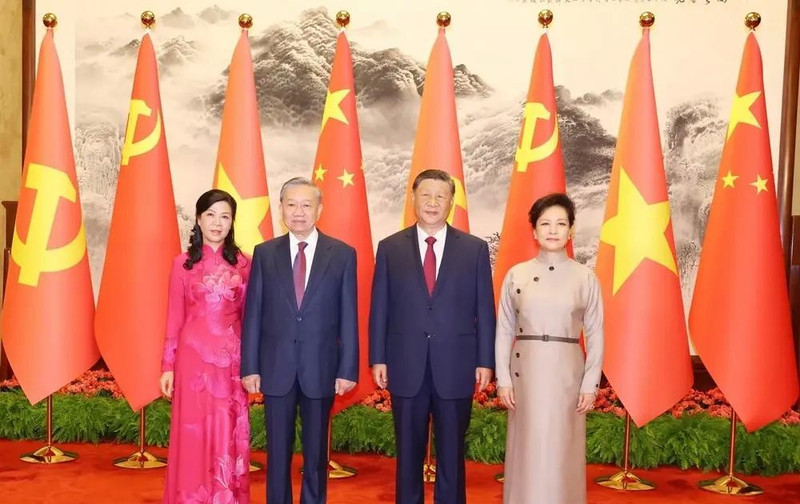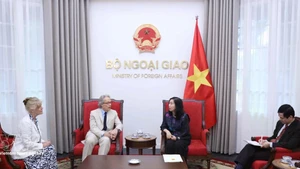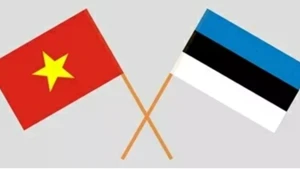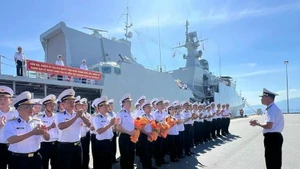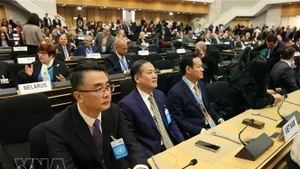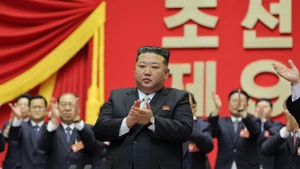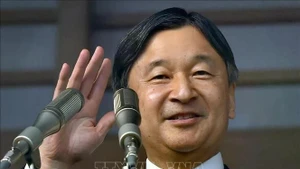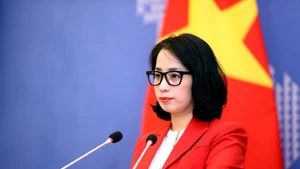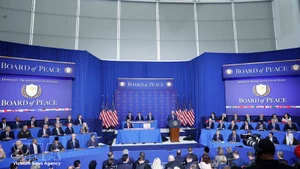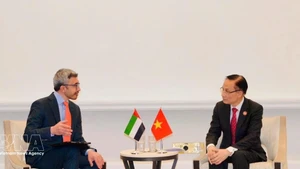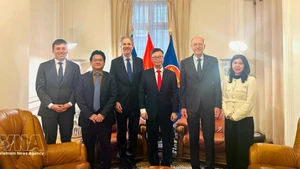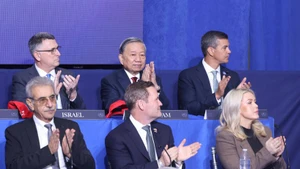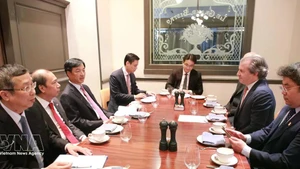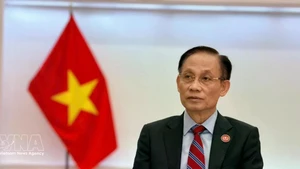At the foreign ministry’s regular press meeting, Hang said the visit by General Secretary and President Lam, his spouse, and the high-ranking delegation of the Vietnamese Party and State was successful in all aspects, greatly contributing to the building of a Vietnam - China community of shared future that carries strategic significance, as well as peace, stability, and development in the region and the world.
The two sides issued a joint statement on the further enhancement of the Vietnam - China comprehensive strategic cooperative partnership to promote the building of a community of shared future.
Elaborating on main outcomes of the visit, the spokeswoman said first, the top leaders of the two Parties and the two countries affirmed that both sides attach importance to bilateral relations, view the prioritisation of developing ties between the two Parties and the two countries as a strategic choice, and support each other to successfully realise national development goals.
They agreed to continue effectively implementing the common perceptions reached between leaders of the two Parties and countries during recent visits, further strengthening the Vietnam - China comprehensive strategic cooperative partnership, and step up the building of a community of shared future in line with the “six major orientations”, namely higher political trust, more substantive security and defence cooperation, more practical and deeper cooperation, more solid social foundation, closer multilateral coordination, and better control and settlement of differences, thus helping bilateral ties obtain more substantive achievements, bringing about practical benefits to the two peoples, and contributing to regional and global peace, cooperation, and development.
Second, Hang noted, the two sides discussed cooperation orientations in various fields, agreeing to foster connections in strategic areas such as diplomacy, national defence and security, and expand collaboration to connect the “Belt and Road” initiative with the “Two Corridors, One Belt” framework.
They concurred in facilitating trade and boosting the export of Vietnam’s agricultural and aquatic products to China. They also encouraged and voiced support for capable and prestigious businesses with advanced technology to invest in each other’s countries, and expand ties to new areas like digital economy, circular economy, green development, clean energy, and renewable energy.
Third, the leaders agreed to designate 2025 as the year of Vietnam - China people-to-people exchanges, and jointly organise celebrations of the 75th anniversary of the bilateral diplomatic relationship.
Fourth, they said their countries will increase the coordination of multilateral cooperation and reinforce cooperation within such mechanisms as the United Nations and the Asia-Pacific Economic Cooperation (APEC).
Fifth, the two sides exchanged sincere and straightforward opinions about sea-related issues. They emphasised the need to better control and actively resolve differences on the basis of the high-level common perception, the agreement on the basic principles guiding the settlement of sea-related issues between Vietnam and China, along with international law, including the 1982 UN Convention on the Law of the Sea (UNCLOS) so as to together maintain peace and stability in the East Sea and the region.
They also agreed to keep coordination in effectively implementing the legal documents on land border and related agreements while enhancing ties in land border areas between the two countries, according to Hang.
On this occasion, she added, Vietnamese and Chinese ministries, sectors, and localities signed 16 cooperation documents in such fields as connectivity, industry, customs examination and quarantine, health care, journalism - communications, as well as partnerships between localities and in people’s welfare.
At the press meeting, the spokeswoman also replied to a question about the Cambodia - Laos - Vietnam (CLV) Development Triangle Area.
She said the solidarity, friendship, bonds, and trust among Cambodia, Laos, and Vietnam form a precious heritage of the three countries and holds strategic significance to the national building, safeguarding, and development of each country as well as all the three, contributing to the development of the ASEAN Community.
Over 25 years of development, the cooperation of the CLV Development Triangle Area has helped bolster economic, trade, and people-to-people ties among the three countries and also improve the life quality of their peoples, particularly residents in this area.
Vietnam will continue working closely with Cambodia and Laos to successfully organise the CLV Development Triangle Area summit in Cambodia this December, the spokeswoman noted.
